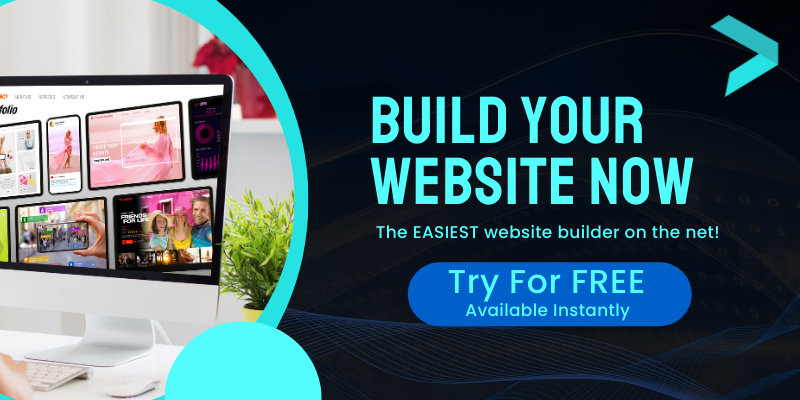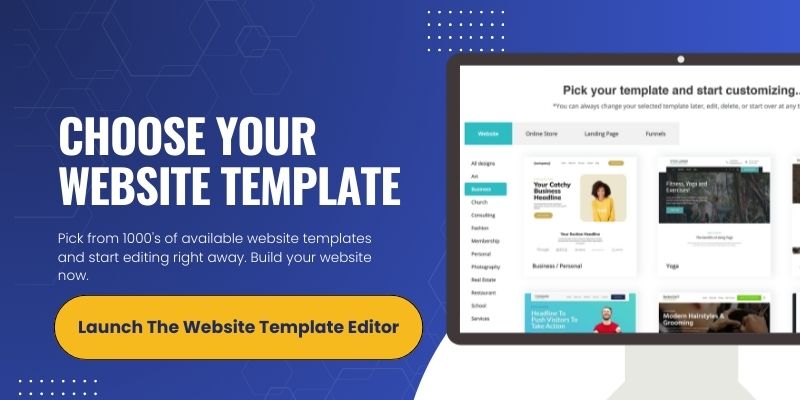Define Your Niche
Understanding Your Target Market
When I’m venturing into the recruitment industry, the first thing I do is narrow down my target market. It’s all about figuring out where I want to focus my energy and resources. Whether it’s tech, healthcare, or temporary placement, understanding your niche sets the stage for everything else.
Knowing your target market helps determine what types of clients you want to attract and what candidates you’ll be sourcing. It’s crucial to consider current market conditions, demand, and which industries are thriving at the moment. This sneak peek can help tailor your messaging effectively.
Moreover, defining your niche helps you tailor your communication strategies both on your website and in your outreach. It allows you to speak the same language as your target audience, making it easier for them to resonate with your branding and offerings.
Researching and Analyzing Competitors
Once I’ve pinpointed my niche, it’s time to scope out the competition. I’m not just talking about a casual glance at their websites; I dive deep. Analyzing what works for them can provide invaluable insights. How are they positioning themselves? What services are they highlighting? This can help inform my unique selling proposition.
Tools like social media analytics and SEO tools come in handy. I look for gaps in their approach—these are golden opportunities for me to fill in the market. If they’re missing a basic need, then I know this is my chance to shine.
Also, gathering feedback from candidates and clients about their experiences with competitors can give me additional perspectives on what to strive for and what to avoid.
Creating a Unique Selling Proposition
Now comes the fun part—crafting my unique selling proposition (USP). If I can’t articulate clearly what makes my agency different and better, then I’m just blending in with the background noise. My USP has to be bold, catchy, and something that speaks directly to potential clients and candidates.
Whether it’s offering exceptional customer service or specializing in hard-to-fill roles, my USP should reflect my passion and expertise. The clearer and more compelling it is, the more likely I am to attract the right relationships.
It’s not just about what I offer, but how I deliver it. For instance, if I prioritize speed and efficiency, my clients need to feel that the moment they reach out.
Build Your Website
Choosing the Right Platform
Getting online is non-negotiable in this digital age. I’ve played around with various platforms like WordPress, Wix, or Squarespace, and let me tell you, each has its pros and cons. The right one for me depends heavily on what type of experience I want to offer my users.
A platform like WordPress might fit my needs better if I’m looking for flexibility and scalability. On the other hand, a builder like Wix can get me a simple and appealing site up and running quickly.
So, considering how I plan to grow in the future is key. I want a site that’ll grow as I do, and that’ll hold up under the changes and demands of my business.
Designing for User Experience
When it comes to web design, it’s all about the user experience, folks! I think about my visitors—what do they want to know? What makes it easy for them to navigate my site? A clean design that’s easy to follow ensures that folks can find the information they need without getting frustrated.
I typically focus on simple color schemes and intuitive navigation. Don’t underestimate the power of having a responsive design; users are accessing my site from all kinds of devices and I need to ensure it looks great everywhere.
A good rule of thumb? Avoid clutter! The more streamlined, the better. Too many distractions can turn potential clients away faster than you can say “job board.”
Incorporating Essential Features
Think about the features that will set your site apart! From job boards to resume upload options, these elements are critical. I usually ensure that my website has a user-friendly job search function to make it easy for candidates to find positions.
Additionally, a blog can be a brilliant tool. I share insights, tips, and information about job trends to position myself as an expert in my niche. Providing valuable content not only helps with SEO but also builds trust.
A testimonials section is also vital! Showcasing success stories from clients and candidates can reinforce the credibility of my services. It’s all about establishing trust and showing potential clients that we mean business.
Market Your Agency
Utilizing Social Media
Social media isn’t just for sharing cute cat videos anymore, right? It’s a powerful marketing tool! I’ve had great success using platforms like LinkedIn, Facebook, and even Instagram to promote my agency. Creating engaging posts and paying attention to what my audience responds to has been crucial in building my brand.
I often share job listings, industry insights, and success stories to keep my audience informed and engaged. Regular interaction is key, whether it’s responding to comments or joining relevant discussions in professional groups.
Remember, it’s not all about my agency—people want to connect! So I make it a point to share a mix of personal insights alongside my professional postings to build a more relatable online presence.
Networking and Partnerships
While digital marketing is essential, never underestimate the power of good old-fashioned networking. I’m a big advocate for attending industry conferences and local meetups. It’s where you meet real people and build lasting relationships.
An excellent strategy is to form partnerships with complementary businesses. For example, working with training providers can lead to mutual referrals, amplifying our client bases effectively.
Remember, building a brand isn’t just about getting clients, it’s about nurturing relationships and becoming a trusted source in the community.
Investing in Paid Advertising
Not afraid to spend a little cash where it counts? Me neither! I believe strategic paid advertising can skyrocket my visibility. Google Ads and targeted social media ads have helped me reach larger audiences more effectively.
It’s important, though, to track my results diligently. This allows me to assess what ads drive the most engagement or applications—this intel is gold for refining my advertising strategy moving forward!
Plus, experimenting with different types of advertisements often leads to unexpected success. Who knew my most engaged audience was looking for something completely different? It’s all about being open to learning!
Manage Relationships
Building Rapport with Clients
Once I gain a client, building that relationship is top priority! Regular check-ins and open lines of communication are essential. I make it a point to understand their specific needs and how I can best support them. This not only helps in service delivery but fosters long-term partnerships.
Being proactive and offering insights into the job market and recruitment processes demonstrates my value. Clients appreciate when they can come to someone who’s not just about making a sale, but genuinely wants to help solve their hiring problems.
Establishing clear expectations at the beginning leads to smoother interactions later. Honesty fosters trust, and that’s the cornerstone of a healthy business relationship!
Engaging with Candidates
Let’s not forget about the job seekers! Saying “hi” to candidates and maintaining engagement is critical in my recruitment process. I make sure to provide feedback after interviews and keep them updated about their applications.
Offering helpful resources, such as resume tips and interview strategies, goes a long way. It shows I care about their success, not just filling a vacancy. Building that rapport opens a network of engaged candidates willing to refer their friends!
Ultimately, being personal and friendly can set my agency apart. If candidates feel valued and understood, it’s likely they’ll come back when they need help in the future!
Effective Follow-Up Strategies
Following up with both clients and candidates is an area I take seriously. A quick message to see how things are going can work wonders. I always keep track of my communication to make sure no one falls through the cracks.
Using tools like automated email follow-ups helps me maintain contact without feeling overwhelming. It’s about striking the right balance; I want to be helpful, not a bother!
Plus, I actively seek feedback post-placement. Knowing what worked—and what didn’t—equips me with insights to improve my processes continuously.
Refine Your Strategy
Measuring Outcomes and Success
Looking back at campaigns and assessing outcomes is vital for growth. Either they’re successful or I’m missing the mark, and either way, it’s a learning opportunity! Metrics like placement rates, client satisfaction, and candidate feedback give me clarity on what’s working.
I find that keeping a close eye on conversions from my marketing efforts helps refine my future strategies. Learning to pivot based on what the data says has become instinctive for me over time.
Taking time to analyze and reflect allows me to stay aligned with goals and makes it easier to adjust course where necessary. It’s all about the continuous journey of improvement!
Soliciting Feedback
Don’t be shy about reaching out for feedback; every word counts! I usually send out surveys or request informal feedback through email or calls. Everyone’s viewpoint matters, and their insights can reveal unexpected strengths or weaknesses.
Creating an open environment where clients and candidates feel comfortable sharing their thoughts puts me a notch above those who don’t give a damn. I genuinely want to hear from them!
Incorporating their feedback into my strategy not only improves my services but also demonstrates a commitment to their needs, which solidifies my reputation.
Continuous Learning and Development
The final piece of the puzzle? Keeping my skills sharp. The recruitment landscape is always changing, so staying updated with market trends, tech advancements, and new strategies is critical.
I frequently attend webinars and workshops, and I’m always reading up on the latest recruitment strategies and tools. Joining networking groups keeps me in the loop with peers who’ve got their own unique takes on overcoming challenges.
Being a lifelong learner fuels my passion for recruitment. It reminds me that I’m not just in it for the results; I genuinely love what I do!
FAQs
What is the main purpose of defining your niche in recruitment?
Defining your niche is crucial as it directs your marketing efforts, shapes your messaging, and helps attract the right clients and candidates who resonate with your services.
How can a unique selling proposition (USP) benefit my recruitment agency?
A strong USP allows your agency to stand out from the competition by clearly communicating what makes you different and why clients and candidates should choose you.
What essentials should be included in a recruitment website?
Your recruitment website should feature job boards, an easy navigation system, a blog for insights, and client testimonials to showcase your agency’s success and approachability.
Why is social media important for a recruitment agency?
Social media can amplify your marketing reach, promote job listings, and facilitate engagement with both clients and candidates, thus driving brand recognition and trust.
How can I effectively measure the success of my recruitment agency?
Measuring success can be done through tracking placement rates, client satisfaction, candidate feedback, and conversion rates from your marketing efforts. This metric analysis helps refine your strategy over time.

